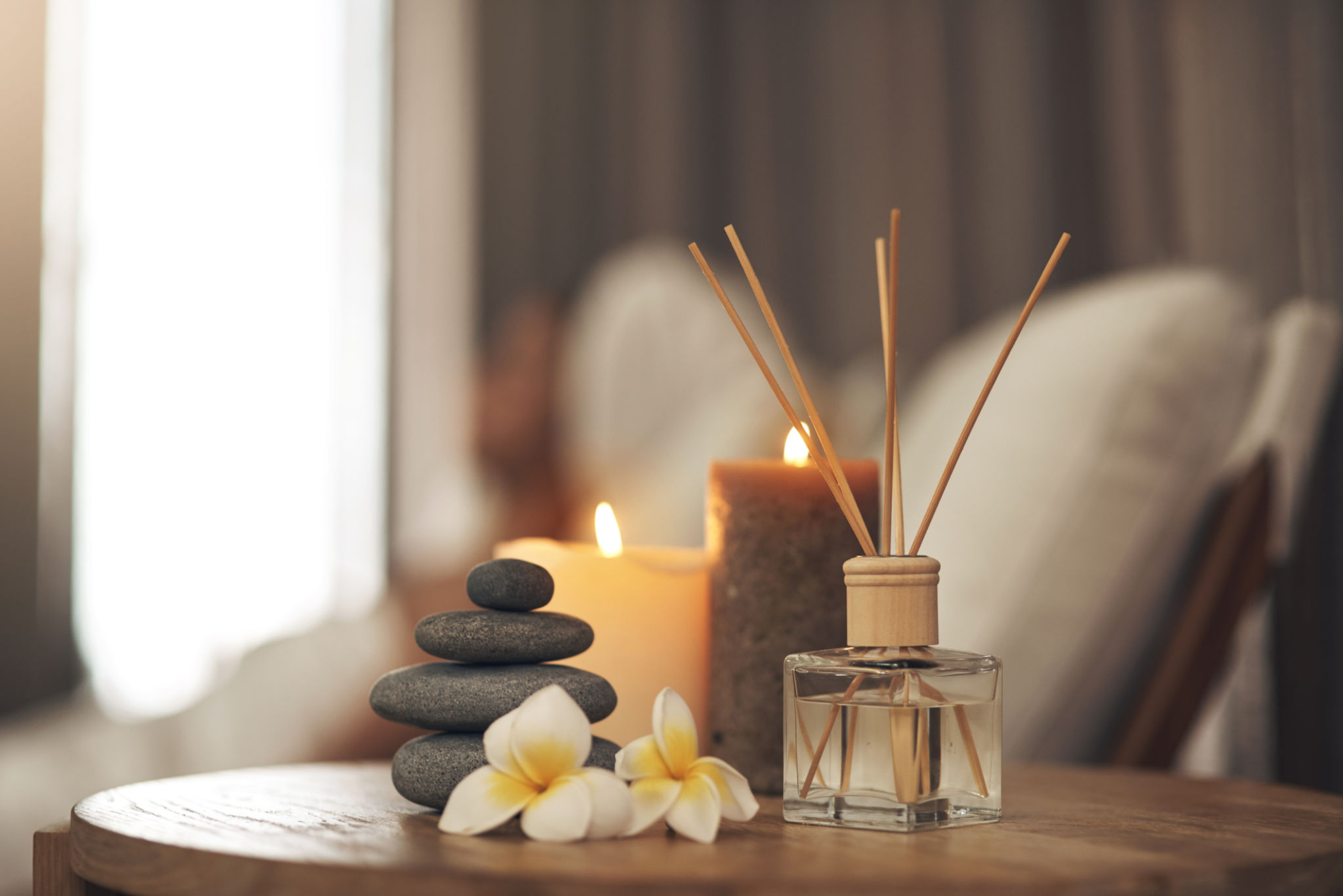The Role of Aromatherapy in Stress Relief: Expert Insights
Understanding Aromatherapy
Aromatherapy, a holistic healing treatment, uses natural plant extracts to promote health and well-being. This practice has been around for thousands of years, leveraging the power of essential oils to enhance both physical and emotional health. The core principle of aromatherapy is to harness the aromatic properties of essential oils to balance the mind, body, and spirit.
While many people are familiar with using scents like lavender or eucalyptus for relaxation, the therapeutic benefits of aromatherapy extend far beyond simple mood enhancement. It plays a crucial role in stress relief, providing a natural and effective way to manage anxiety and tension in our fast-paced world.

How Aromatherapy Works
Aromatherapy works through the sense of smell and skin absorption. Essential oils can be diffused in the air, inhaled directly, or applied to the skin. When inhaled, the scent molecules in essential oils travel from the olfactory nerves directly to the brain and especially impact the amygdala, the emotional center of the brain.
Moreover, some essential oils have antimicrobial properties, which make them beneficial for internal use. However, it is important to note that while topical application can be effective, it often requires dilution with a carrier oil to prevent skin irritation.
Benefits of Aromatherapy for Stress Relief
The role of aromatherapy in stress relief is well-documented. Essential oils can help soothe stress by promoting relaxation and improving sleep quality. Here are some popular essential oils used for reducing stress:
- Lavender: Known for its calming effects, it helps alleviate anxiety and promotes restful sleep.
- Bergamot: Often used to reduce stress and improve mood by creating a sense of calm and contentment.
- Chamomile: Offers a gentle calming effect that can help manage stress and promote relaxation.

Expert Insights
Experts in the field of aromatherapy suggest that incorporating essential oils into daily routines can significantly improve mental well-being. According to Dr. Sarah Williams, a certified aromatherapist, "Aromatherapy works as a complementary therapy in managing stress and anxiety. It offers a natural alternative to pharmaceuticals by promoting relaxation through sensory experiences."
Furthermore, research supports these claims, showing that aromatherapy can reduce cortisol levels—the hormone responsible for stress—leading to a more balanced mood and enhanced well-being.
Practical Applications
Incorporating aromatherapy into your lifestyle can be simple and enjoyable. Here are some practical applications:
- Add a few drops of essential oil to your bath for a relaxing soak.
- Use an essential oil diffuser in your home or office to fill the air with calming scents.
- Create a personal aroma spray by mixing essential oils with water in a spray bottle.

Choosing Quality Essential Oils
Not all essential oils are created equal. When selecting essential oils for aromatherapy, it's crucial to choose high-quality products. Look for oils that are 100% pure and free from additives or synthetic ingredients. Checking for certifications or testing reports can also ensure the oil's authenticity and potency.
It's equally important to store essential oils properly. Keep them in dark glass bottles away from direct sunlight to preserve their aromatic properties and extend their shelf life.
Conclusion
The role of aromatherapy in stress relief is both profound and accessible. By incorporating essential oils into your daily routine, you can create an environment conducive to relaxation and tranquility. Whether you're looking to unwind after a long day or seeking an alternative method to manage stress, aromatherapy offers a natural path towards maintaining emotional balance and overall well-being.
